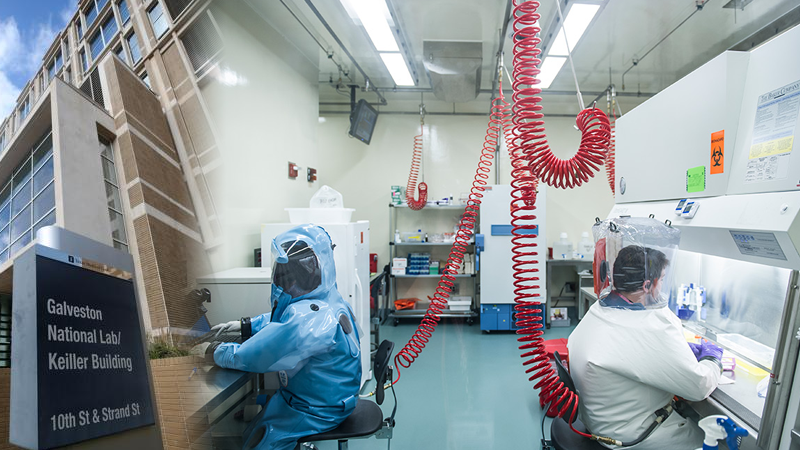GNL is home to a collection of deadly animal pathogens, including Ebola, Marburg, and Lassa viruses. These viruses are highly contagious and can cause fatal infections in humans.

The Galveston National Laboratory (GNL) is a biosafety level 4 (BSL-4) laboratory located in Galveston, Texas. It is operated by the National Oceanic and Atmospheric Administration (NOAA). BSL-4 labs are the highest level of bio containment facilities in the world, and they are designed to handle the most dangerous animal pathogens known to science.
GNL is home to a collection of deadly animal pathogens, including Ebola, Marburg, and Lassa viruses. These viruses are highly contagious and can cause fatal infections in humans.
In recent years, there have been a number of concerns raised about the safety of GNL. In 2014, a worker at the lab was accidentally exposed to Ebola virus. The worker was hospitalized, but eventually recovered.
Concerns over the safety of GNL
There are a number of concerns raised about the safety of the Galveston National Laboratory (GNL). These concerns include:
The lab’s proximity to a major population center
GNL is located in Galveston, Texas, which is a city of over 50,000 people. If a pathogen were to escape from the lab, it could potentially infect a large number of people.
The lab’s history of safety lapses
In 2014, a worker at GNL was accidentally exposed to Ebola virus. The worker was hospitalized, but eventually recovered. In 2017, a report by the Government Accountability Office (GAO) found that GNL had a number of safety deficiencies. The GAO report found that GNL had not adequately trained its staff on how to handle dangerous pathogens, and that the lab had not properly secured its hazardous materials.
NOAA has taken some steps to address the safety deficiencies at GNL. However, the GAO report found that NOAA had not yet fully implemented all of the recommendations. The GAO report also found that NOAA had not adequately communicated the safety risks to GNL staff.
The lab’s lack of transparency
GNL has been criticized for its lack of transparency with the public. The lab has been reluctant to release information about its work, and it has been accused of downplaying the risks posed by its research.
Safety deficiencies of GNL
The Galveston National Laboratory has been criticized for its safety deficiencies, including:
Inadequate training for staff
GNL staff have been found to be inadequately trained in safety procedures. In one incident, a worker was injured when he was exposed to a hazardous chemical because he was not properly trained in how to handle it.
Lack of adequate safety equipment
GNL has been found to lack adequate safety equipment, such as personal protective equipment (PPE). In one incident, a worker was injured when he was exposed to a hazardous chemical because he was not wearing the proper PPE.
Inadequate safety procedures
GNL has been found to have inadequate safety procedures in place. In one incident, a worker was injured when he was exposed to a hazardous chemical because the safety procedures were not followed.
The GAO report also found that GNL had not adequately communicated with the public about the risks posed by the lab’s work.
The safety deficiencies at GNL are a serious concern. These deficiencies could lead to injuries or even death. NOAA needs to take steps to fully address the safety deficiencies at GNL and to ensure the safety of the people who work there.
What are the risks of a BSL-4 lab?
BSL-4 labs are designed to handle the most dangerous animal pathogens known to science. These pathogens can cause fatal infections in humans, and they can be easily spread through contact with bodily fluids or contaminated surfaces.
The risks of a BSL-4 lab are significant. If an animal pathogen were to escape from a lab, it could cause a widespread outbreak. In addition, the work done in BSL-4 labs could be used to develop biological weapons.
What are the benefits of a BSL-4 lab?
BSL-4 labs are essential for research on deadly animal pathogens. This research can help us to develop vaccines and treatments for these diseases. In addition, research on deadly pathogens can help us to understand how these diseases spread and how to prevent them.
What is the debate over the future of GNL?
The debate over the future of GNL is complex. On the one hand, the lab poses a serious risk to public safety. On the other hand, the lab is an essential facility that plays a vital role in research on deadly pathogens.
The decision of whether or not to close GNL is a difficult one. There are no easy answers. However, it is important to have a public discussion about the risks and benefits of the lab.